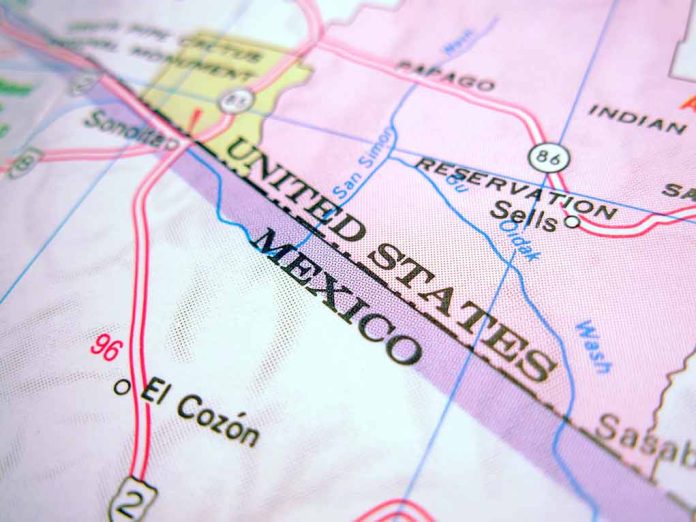
Mexican President Claudia Sheinbaum’s direct deportation proposal aims to address the intricate immigration challenges facing the U.S. and Mexico.
At a Glance
- Claudia Sheinbaum proposes direct deportation agreements with the U.S. for non-Mexican nationals.
- Donald Trump plans large-scale deportations of illegal immigrants during his presidential term.
- Mexico currently supports the U.S. with deporting non-Mexicans by air.
- The Bahamas rejected deportation flights from the U.S., citing resource limitations.
Mexico’s Proposal for Direct Deportations
Mexican President Claudia Sheinbaum aims to reach an agreement with the United States regarding the direct deportation of non-Mexicans to their countries, bypassing Mexico. This proposal aligns with President-elect Donald Trump’s plans to deport a significant number of undocumented immigrants. Mexico has an existing agreement with the Biden administration, facilitating the return of non-Mexican individuals by air. This current arrangement demonstrates Mexico’s willingness to collaborate with the U.S. on broader immigration issues.
The agreement underscores Mexico’s priority to accept its nationals while extending a hand to help handle other immigration concerns. Mexico receives up to 30,000 people monthly from countries like Cuba, Haiti, Nicaragua, and Venezuela who attempt illegal crossings. These efforts reveal the depth of diplomatic negotiations required in tackling international migration and deportation policies.
Mexico's president said Thursday she will ask President-elect Donald Trump to deport non-Mexican migrants directly to their home countries, rather than dumping them at the Mexican border. https://t.co/hQb6n1i9FF
— The Washington Times (@WashTimes) December 6, 2024
Diplomatic Challenges and Proposed Solutions
This proposal by Sheinbaum comes alongside historical diplomatic complexities seen during Trump’s first term. At that time, Mexico implemented the “remain in Mexico” protocol for asylum seekers while maintaining a cooperative dialogue on other immigration matters. These collaborative efforts have been revisited in recent communications between Sheinbaum and Trump, following Trump’s tariff threats on Mexican exports. Such interactions underscore the continued partnership significance between the two countries.
Trump’s team is simultaneously exploring possibilities for deporting illegal immigrants to other countries if their home countries refuse them. The Bahamas, however, rejected requests from Trump’s team to accept deportation flights due to resource limitations. The U.S. faces logistical challenges not just in deportations but in fostering international cooperation for sustainable solutions, highlighting the reality of intricate global partnerships.
Mexico's president on Trump deportation plans: Immigrants are not 'criminals' https://t.co/ImkpgZBQtZ
— Los Angeles Times (@latimes) November 21, 2024
Implications of a New Partnership
This evolving partnership between Mexico and the U.S. under Sheinbaum’s proposal could shift longstanding immigration strategies. Sheinbaum’s willingness to work with Trump in developing new deportation policies might ease the burden placed on Mexico as a transit nation, while also respecting the borders of respective home countries. By offering a structured pathway for deportations, Mexico tries to strike a balance between national obligations and international responsibilities.
These proposed agreements demonstrate a concerted effort in addressing complex migration issues that have challenged both Mexican and U.S. borders for years. By prioritizing direct deportations, Sheinbaum’s initiative seeks to foster a pragmatic dialogue for a cooperative migrant policy framework.





